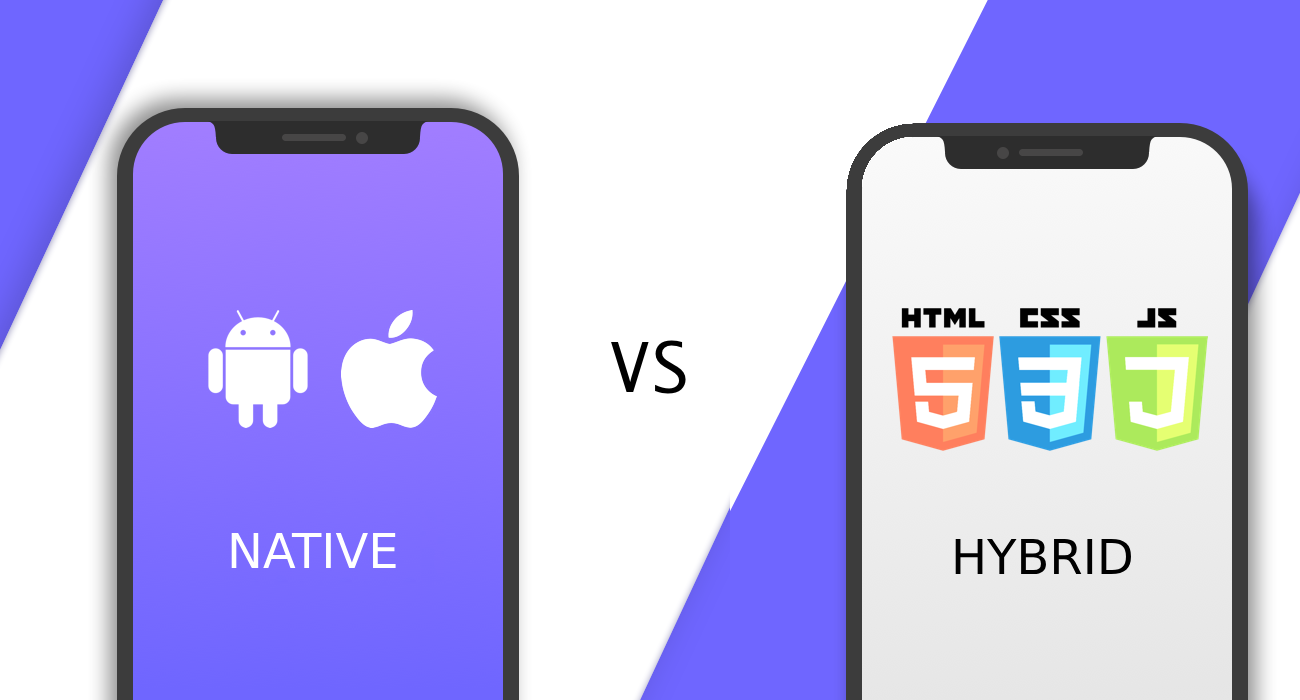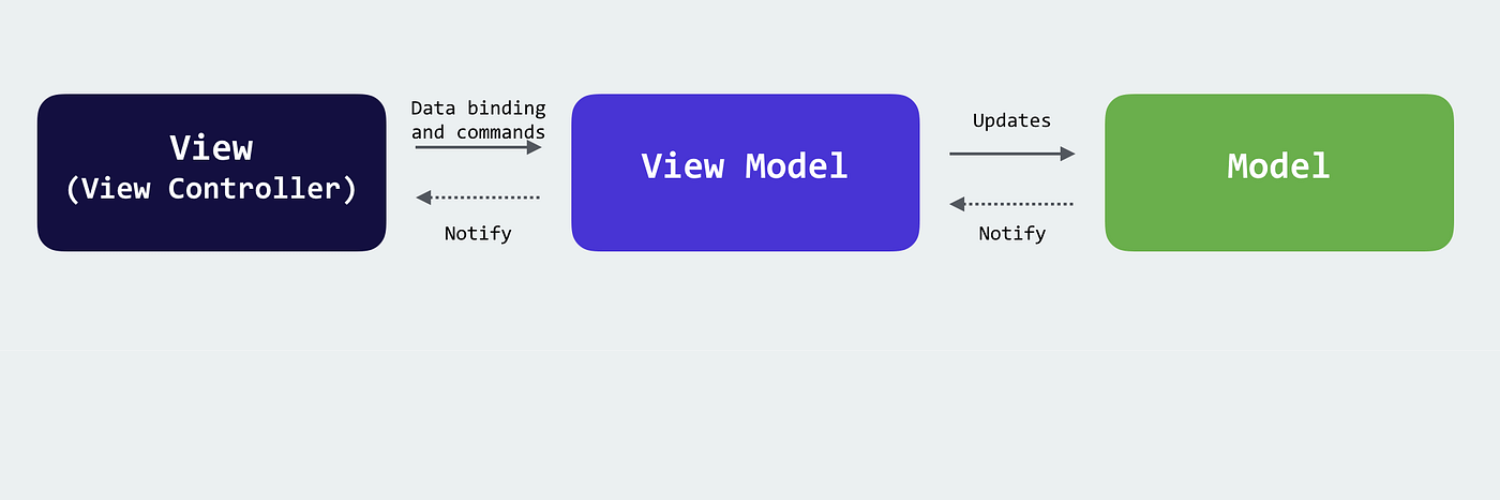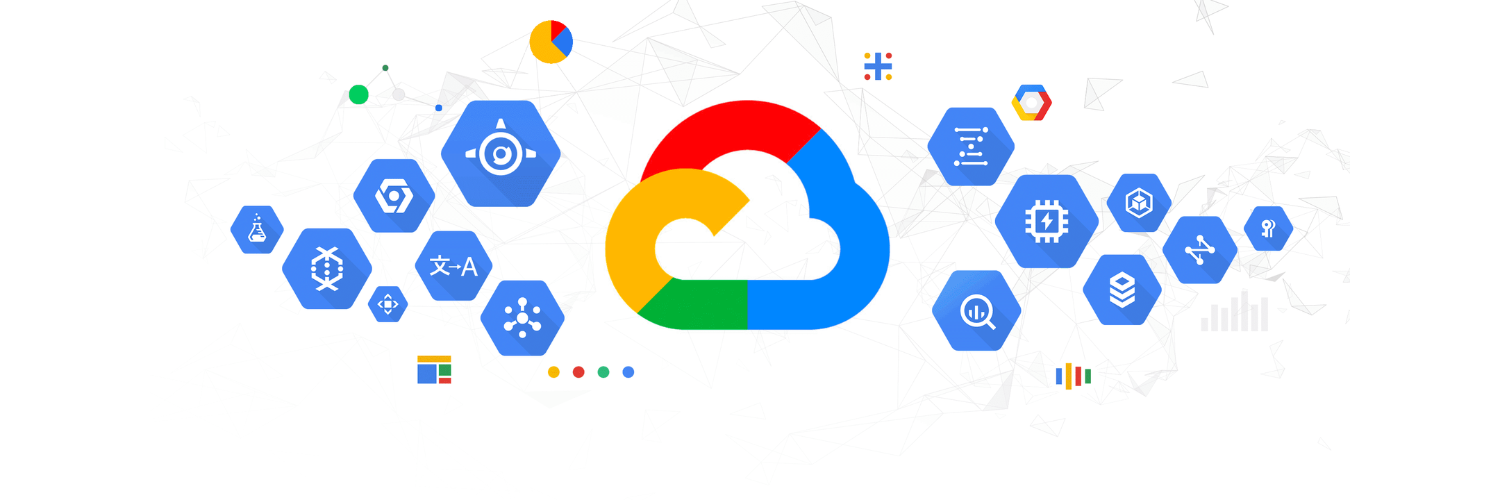React Native is a ground-breaking technology that is revolutionizing the field of developing mobile applications. We regard React Native as more than simply a cool tool because we are a software company that is constantly searching for the next big thing. It's a force that is altering the playing field for those interested in building their own apps.
In the swiftly evolving realm of mobile app development, businesses and developers constantly seek tools that streamline the process, enhance productivity, and reduce time-to-market, all without compromising on user experience. React Native is a revolutionary framework that's altering the mobile app development landscape.
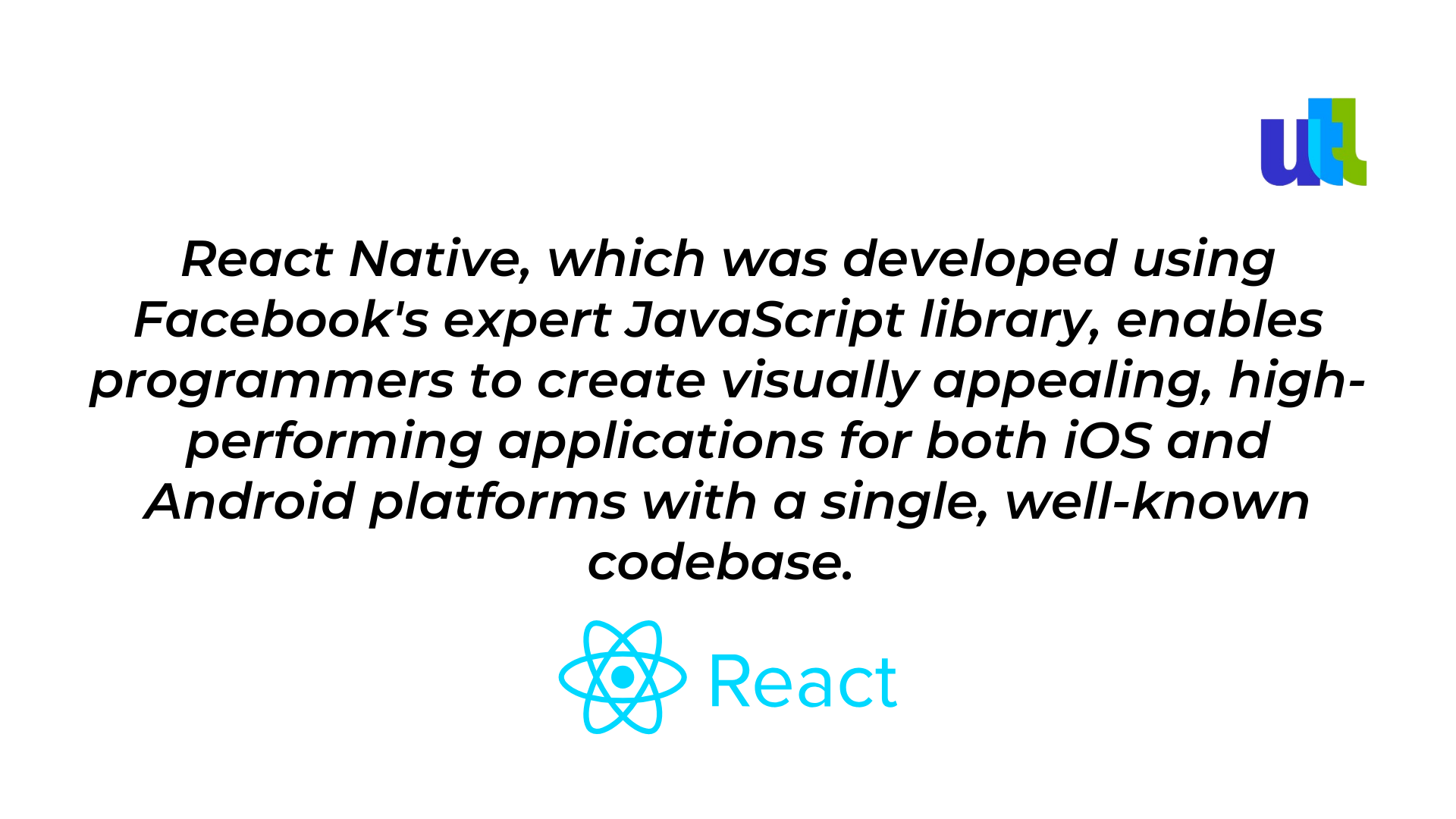
As a tech company always on the lookout for the next big thing, we see React Native as more than just a cool tool. It's a powerhouse that's changing the game for everyone interested in creating their own apps.
The Advantages of React Native Explained:
1. True Native Performance with One Codebase:
React Native is no ordinary framework. React Native deviates from conventional approaches like Cordova or Ionic which rely on webviews, which have performance issues and frequently have a non-native feel. Developers can use a combination of JavaScript and JSX (a JavaScript syntax extension) to create code that speaks directly to the platform's native rendering APIs. This means that the apps you create have the same smooth animations, flawless UI consistency, and quick response times as any other native app on your phone.
2. Cross-Platform Development Made Easy:
In the past, creating apps for iOS and Android required maintaining two entirely different codebases, which was difficult and time-consuming. By allowing developers to use a single codebase for both platforms, React Native changes the game. It allows you to write most of your code once and execute it anywhere, greatly accelerating development times and lowering maintenance expenses.
3. Enhanced Developer Experience:
React Native improves the creation process rather than just the final product. Developers can observe changes right away without the lengthy wait periods required by conventional mobile development approaches due to features like hot reloading. Additionally, you will feel right at home if you are familiar with web development tools and libraries because you can use the same JavaScript skills and even your preferred debugging tools.
4. Efficient Code Reuse & Knowledge Transfer:
Consider the increase in productivity that will result from allowing your engineers to exchange and reuse code between teams and various platforms. That is React Native's strength. It encourages knowledge sharing and drastically reduces the amount of time spent on development. The Facebook Ads Manager app, for example, shares the majority of its code between its Android and iOS versions, so several well-known brands have already experienced the benefits.
In conclusion, React Native is more than simply a tool; it's a flexible solution that is changing how companies and developers see the creation of mobile apps.
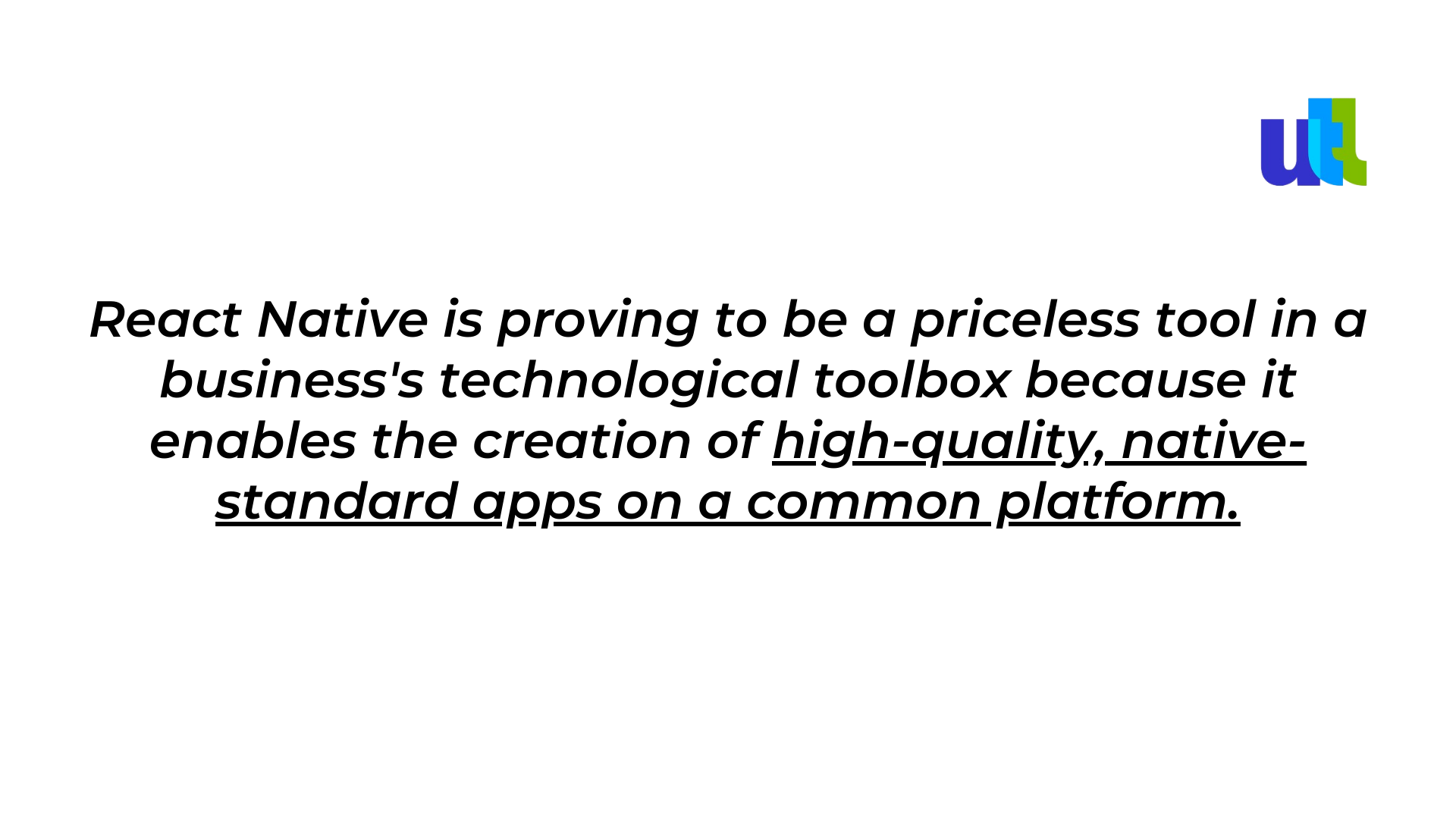
It's time to think about React Native as your go-to framework in your mobile app development journey, whether you're wanting to enhance your company offers or streamline your development procedures.
Understanding the Risks and Drawbacks of React Native
While React Native's benefits for developing mobile apps have justifiably received praise, companies and developers need to take a comprehensive approach that takes into account the framework's drawbacks and difficulties. React Native has trade-offs, much like any other technology.
In this section, we assist you in determining whether React Native meets the needs of your project, and we will go over some of the potential dangers and disadvantages that are related to it.
1. Youth and Maturity:
React Native's relative novelty is one of the most important problems. React Native doesn't have the lengthy history that some other technologies do, having only added support for iOS in March 2015 and Android in September 2015. Due to its youth, the documentation is less extensive than that of older systems, although it is constantly improved. Additionally, the React Native community is still developing best practices and supporting every feature offered by iOS and Android.
2. Debugging Challenges:
React Native adds a layer of complexity to your tech stack that can make debugging more difficult, particularly when problems occur where React Native and native code converge. Finding issues takes a thorough understanding of both fields, which can involve more work from your development team.
3. Adopting the New:
React Native is no different from other developing technologies meaning that it carries inherent dangers with it. Despite the fact that it has evident potential, it is still a work in progress. Teams considering React Native need to be ready to deal with the unknowns that come with cutting-edge technology. This can entail dealing with unforeseen problems, not having adequate resources, or having to directly contribute to the development of the tool.
Summary
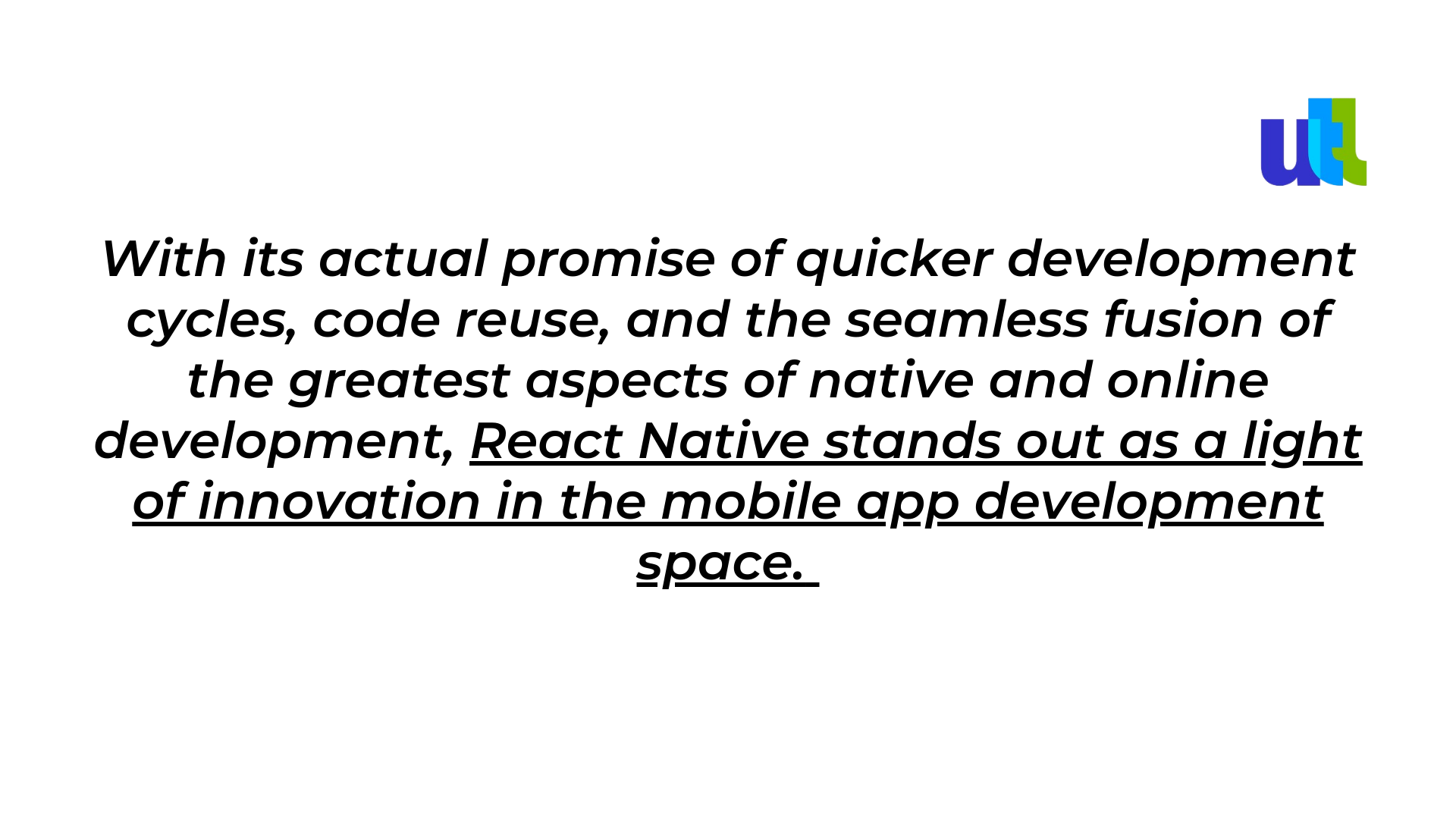
However, because it is a relatively new participant in the sector, there are difficulties that teams must be prepared to face. React Native is a tempting choice to think about if your team is adaptable, eager to adopt new technologies, and considering developing applications across several platforms. Despite its flaws, many people believe that its advantages provide a strong argument for its adoption and tilt the scales in its favor. Understanding your team's skill set, project requirements, and risk tolerance can help you make the best technology decision, as it does with other technology decisions.
Understanding the Costs of Building a Robust Mobile App with React Native
Diving into the realm of mobile app development without a clear understanding of your app's required features or the specific kind of app you wish to develop is akin to setting sail without a compass. As a result, asking how much it would cost to construct a mobile app without providing these essential facts would be somewhat pointless.
But before you set out on a passionate quest to discover the average prices connected with app development, it's crucial to understand the numerous factors that significantly affect these costs. The complexity of the program, the variety of features and functionalities it offers, testing challenges, UI/UX design complexities, the chosen operating system, and others are important considerations.
Let's say your goal is to build a simple mobile app with all the necessary functions. In such a situation, you should budget between $20,000 and $25,000 on average for each platform. On the other hand, if your goal is to create a full app packed with cutting-edge features, you may need to invest anywhere between $25,000 and $35,000 for each platform.
However, there are financial benefits to using React Native for your development process, including a potential 40% overall cost savings. Features like Hot Reloading, code reuse, and cross-platform capability, which all speed the development process and save time and effort, are primarily responsible for this cost-effectiveness. In other words, choosing React Native positions your program advantageously for future adaptation while simultaneously reducing costs.
Nonetheless, it's important to keep in mind that every organization has unique requirements that call for customized solutions. Therefore, it would be wise to arrange a free consultation session with knowledgeable experts to receive realistic cost estimates that are tailored to your particular project. By taking this step, you can start your app development journey with clarity, assurance, and expert insights.
Success Stories of Apps Built with React Native
As we delve into the practical application of React Native, it's worth examining real-world cases of popular apps that leverage this technology. Let's explore some of the notable applications developed using React Native.
1. Facebook:
The journey of React Native began with Facebook when the company sought to translate the advantages of web development into the mobile realm, such as rapid iterations and a unified development team for multiple platforms. React Native was specifically used by Facebook for the Ads Manager app, allowing the same team to work on both the iOS and Android versions at the same time.
2. Skype:
In 2017, Skype generated excitement by announcing an updated app made possible by React Native. This redesign went beyond simple icon updates to a new message system divided into three sections: "find," "chat," and "capture." The parent company of Skype, Microsoft, expanded the use of React Native to the desktop version, demonstrating the adaptability of the framework.
3. Instagram:
Instagram embraced React Native within its existing app, initially focusing on the Push Notification view. The integration was seamless, negating the need for a separate navigation system due to the simplicity of the UI. The transition to React Native enhanced the development speed significantly, with reported increases in developer velocity by 85-99%.
4. Uber Eats:
Uber Eats stands as a testament to React Native's adaptability. Unlike the standard Uber app, Uber Eats connects three parties: restaurants, delivery partners, and customers, necessitating a unique dashboard for restaurants. Despite their team's proficiency in React, they lacked substantial experience in native Android and iOS development, making React Native a fitting choice. Although React Native forms just a fragment of their extensive tech ecosystem, the team acknowledges its substantial contributions and potential scalability.
5. Pinterest:
The interest of Pinterest's engineers in React Native dates back to the framework's inception in 2015. Already utilizing Gestalt, their own React-based UI component library, for their web app, the engineers anticipated a smooth transition. To evaluate React Native, they implemented a prototype of a crucial feature, the Topic Picker. The expedited development process, coupled with satisfying performance on both iOS and Android, led to React Native becoming a permanent fixture in Pinterest's mobile development toolkit, extending beyond the Topic Picker to other features like the Business Signup sequence.
These success stories underscore React Native's capabilities in not just fulfilling, but also enhancing mobile app development requisites across diverse applications.
Unraveling the Intricacies of React Native
1. Can React Native be used for Android applications?
Absolutely! React Native is a robust framework designed to bridge the gap between native development and the React JavaScript library. It's perfectly suited for integrating with both Android and iOS projects, whether you're enhancing existing applications or starting from scratch.
2. What programming language does React Native use for Android app development?
React Native primarily employs JavaScript, one of the most prevalent programming languages in the world. This language is especially popular among web developers and works in harmony with React, allowing for the seamless creation of cross-platform applications.
3. Why should developers consider using React Native for Android apps?
Opting for React Native is a strategic move for any mobile app project. Not only does it ensure a smooth, high-performance user experience, but it also cuts down on development time, offering a faster route to market. Additionally, React Native is a more cost-effective approach compared to traditional native app development, maintaining high-quality standards and rich functionality.
4. Is Facebook still utilizing React Native?
Despite its initial role in React Native's creation, Facebook has indeed scaled back its use due to various strategic reasons, including financial factors. The level of investment required didn't align with the anticipated benefits, leading to a gradual shift away from the framework.
5. What makes React Native applications so fast?
The secret behind React Native's speed is its use of genuine native components for rendering the UI, instead of web components. This approach ensures not only quick load times but also provides a fluid, responsive interaction for users, closely mimicking the feel of native apps.
In conclusion, React Native, with its compelling set of advantages, has proven to be a game-changer in the mobile app development arena. The framework not only promises rapid development and high performance but also ensures cost efficiency, making it a preferred choice for businesses in 2022.
In this blog post, we tried to clear the air regarding some common queries about React Native. However, the world of app development is vast and ever-evolving. If you have more questions or need further clarification, don't hesitate to reach out to Utah Tech Labs professionals for more insights!
For free consultation on mobile app development, click here.
----------------------------------------------------------------------------------------------
View the full presentation:
WRITTEN BY
Milda Butkeviciute
2023-10-27








